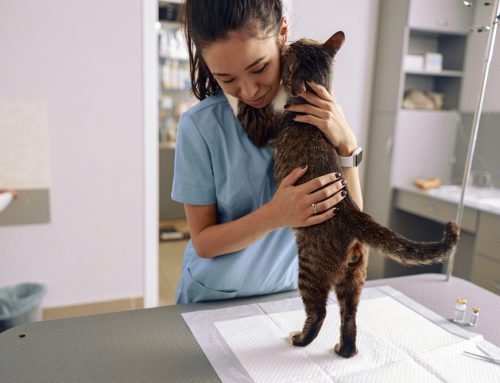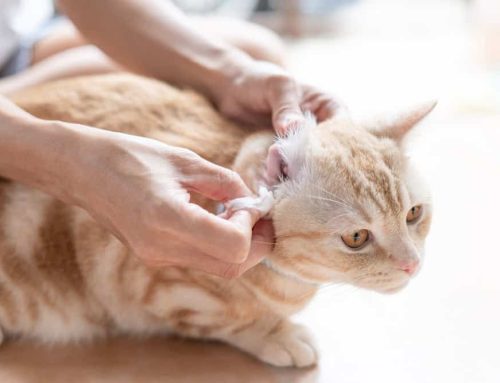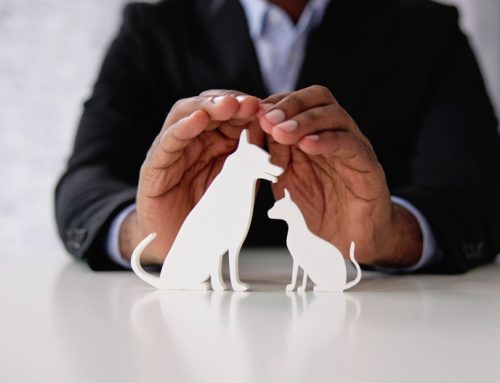July Fourth is a time of celebration, filled with fireworks, barbecues, and outdoor activities. While these festivities are enjoyable for people, they can be stressful and dangerous for pets. As a responsible pet owner, it’s important to take precautions to ensure your furry friend stays safe and comfortable during the holiday. Use this comprehensive guide to July Fourth safety from our Kauai Veterinary Clinic to safeguard your pet.
Protect your pet from fireworks
Fireworks are a staple of July Fourth celebrations, but their loud noises and bright flashes terrify many pets. Frightened pets can become anxious, stressed, and disoriented, and they may run off and potentially be injured or lost. Even if your pet is not bothered by the noise, avoid igniting fireworks when they are present, because they could try to catch or play with the fireworks, leading to burns and other injuries. Before the booms begin, create a safe, quiet space for your pet to stay. This strategy helps them feel calm and secure and insulates them from noises that may startle them. Include comfy bedding and familiar toys in your pet’s space. You also can play calming music, dispense soothing pheromones, or put an anxiety wrap on your pet.
Watch your pet for signs of overheating
Many people celebrate July Fourth with a backyard cookout, but sizzling temperatures outside can be a concern for people and pets. Pets can suffer from heat exhaustion and heatstroke much more quickly than humans. Unlike people, pets sweat primarily through their paw pads and pant to regulate their body temperature, making them more vulnerable to overheating. Recognizing the signs of heat stress and taking preventive measures are key to keeping your pet safe. Monitor them for the following signs:
- Excessive panting
- Thick, ropey drool
- Lethargy
- Dizziness
- Lack of coordination
- Bright red gum and tongue color
- Collapse
- Vomiting
- Diarrhea
- Seizures
- Coma
If you see signs your pet is overheating, take them inside and point a fan at their face. Ideally, ensure their temperature remains under 103 degrees. If their temperature does go higher, run cool water over them in the bathtub to bring their temperature down and contact Kauai Veterinary Clinic or your nearest veterinary emergency facility immediately.
Keep festive food away from your pet
At July Fourth cookouts, there is no shortage of delicious food. However, many of these yummy dishes can be harmful or toxic to pets. Keep these July Fourth favorites out of your pet’s reach to avoid an unwanted trip to the vet:
- Meat — Your pet may gravitate toward the grill, but greasy, fatty, or seasoned meat can trigger intense gastrointestinal (GI) issues and pancreatitis.
- Bones — Bones can cause choking, lacerations, or dangerous blockages.
- Corn cobs — Corn cobs are the perfect size to become trapped in your pet’s digestive tract, requiring surgical removal. Ensure you and your guests dispose of all corn cobs in a secure trash can.
- Onions — This popular burger topper can damage your pet’s red blood cells and cause anemia.
- Alcohol — An alcoholic drink can intoxicate your pet, causing severely low blood sugar, body temperature, and respiratory rate.
- Chocolate — Chocolate contains stimulants that affect your pet’s heart and nervous system. Typically, the darker and more bitter the chocolate, the more dangerous.
- Sugar-free desserts — Many sugar-free foods contain xylitol, a natural sugar substitute that causes a dog to experience life-threatening low blood sugar and liver failure.
Ensure your pet wears a collar with identification

More pets go missing during July Fourth celebrations than at any other time of the year. If your pet gets loose, you can help increase the chances of a happy reunion by ensuring they wear a collar and ID tag at all times. Collars and ID tags are helpful, but they can sometimes fall off. A microchip, however, provides permanent identification. Your veterinarian can implant this tiny device underneath your pet’s skin during an outpatient visit. The chip provides authorities access to your contact information should your pet be turned into a shelter, police station, veterinary hospital, or animal control facility and makes it more likely they will be returned to you quickly.
Don’t wait to prepare for a pet-safe July Fourth. Take action now if you think your pet will need medications or other treatments to keep them safe during the fireworks displays. Contact our Kauai Veterinary Clinic team to schedule an appointment.










Leave A Comment